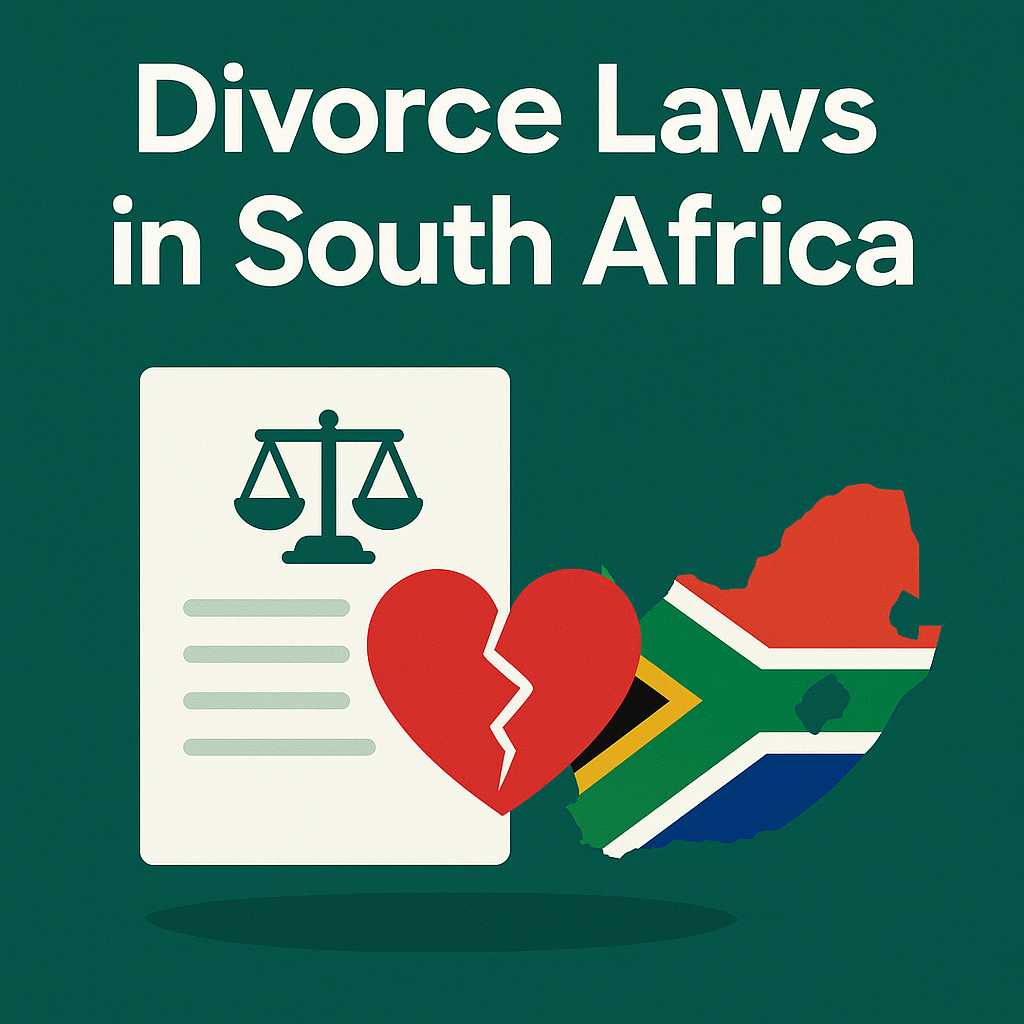
Divorce Laws in South Africa: What You Need to Know
Tapiwa Simon Gondo
Share this blog

Divorce is never easy, but understanding the legal process can make it less overwhelming. In South Africa, divorce is governed by the Divorce Act of 1979, and the country recognizes both civil and customary marriages. Whether you are separating due to irreconcilable differences, infidelity, or other reasons, it’s important to know your rights and responsibilities.
This article breaks down the key aspects of divorce laws in South Africa—from types of divorce to property division and child custody.
Grounds for Divorce
South Africa follows a “no-fault” divorce system, meaning you don’t have to prove wrongdoing by your spouse. A divorce can be granted if:
- The marriage has broken down irretrievably (e.g., lack of communication, abuse, adultery, or long-term separation)
- Mental illness or unconsciousness of one partner for a continuous period (as defined by law)
Types of Divorce in South Africa
There are two main types of divorce:
1. Uncontested Divorce
- Both parties agree to the divorce and terms (property division, maintenance, custody).
- Faster, less expensive, and often finalized within 4–8 weeks.
- Ideal when there’s clear communication or a settlement agreement in place.
2. Contested Divorce
- Spouses disagree on key issues like finances, custody, or asset distribution.
- Usually takes longer—several months to years.
- Requires legal representation and can be emotionally and financially draining.
The Divorce Process: Step-by-Step
- Summons Issued
One spouse (the plaintiff) files a summons at the appropriate High Court or Regional Magistrate’s Court. - Plea and Counterclaim
The other spouse (the defendant) responds. If contested, they may file a counterclaim. - Settlement Negotiation
Parties may negotiate a settlement agreement through their lawyers or mediators. - Court Hearing
If the matter is uncontested, it proceeds quickly in court. For contested cases, evidence is presented, and a judge makes a final ruling. - Final Decree of Divorce
The court issues a Decree of Divorce, officially ending the marriage.
Division of Property
Property division depends on the marital regime:
- In Community of Property: All assets and debts are split equally.
- Out of Community of Property (with or without accrual): Assets are divided based on terms in the antenuptial contract.
- Customary Marriages: Governed by both the Recognition of Customary Marriages Act and applicable customary law.
Note: If you married without signing an antenuptial contract, you are automatically considered married in community of property.
Maintenance (Spousal and Child Support)
- Spousal Maintenance: Not automatically granted. Depends on factors like income, earning potential, and duration of the marriage.
- Child Maintenance: Both parents are legally obligated to support their children financially. The amount is based on income, expenses, and the child’s needs.
Child Custody and Access
The court prioritizes the best interests of the child under the Children’s Act. Custody arrangements include:
- Primary residence: Where the child lives most of the time.
- Contact (Visitation): The right of the non-custodial parent to maintain a relationship with the child.
- Guardianship: Legal authority to make decisions about the child’s welfare, schooling, medical care, etc.
Courts often encourage co-parenting and may order shared parenting plans.
Do You Need a Lawyer?
- For uncontested divorces, you may proceed without a lawyer.
- For contested divorces or when children/property are involved, hiring a family law attorney is strongly recommended.
Conclusion
Divorce in South Africa is legally straightforward but emotionally complex. Whether amicable or contested, understanding the laws can help you protect your rights and navigate the process more smoothly. If you’re considering divorce or currently in the process, seek legal advice early to ensure the best outcome for you and your family.
Need Legal Help?
LawHelpZone connects you with trusted family law attorneys across South Africa who can assist with divorce, custody, and maintenance issues.
